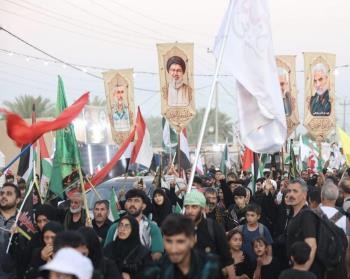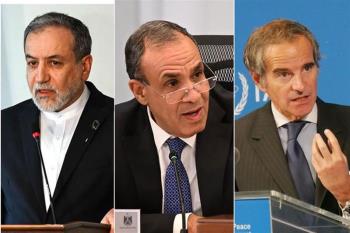Alwaght - long-standing and good relations between Afghanistan and India have always been based on friendship. India, due to the positive performance in the issues of Afghanistan, is popular among the Afghan people. Over the past thirteen years, India has supported the establishment of democracy and the spread of freedom in Afghanistan, and has donated more than $ 5.2 billion to Afghanistan taking significant contributions in the reconstruction of development and training sections.
Goals of the visit
Mohammad Ashraf Ghani president of Afghanistan along with a high-ranking delegation arrived atNew Delhi for a three-day trip and Negotiated with Indian Prime Minister. The purpose of this journey has been announced reviving Afghanistan's ties with India and removing New Delhi's concerns over the boosting relations between Kabul and Islamabad. Peace in Afghanistan carries three important implications for India: Military outcome based on Strengthening extremist groups threatening security; economic outcome based on the development of trade relations between India and Central Asia; the political outcome based on the consolidation of democracy in Pakistan to undermine the country's army.
From some analysts point of view, close and friendly relations between Delhi and Kabul over the past thirteen years is one of the reasons behind continuing insecurity in Afghanistan.. Relationship that is highly sensitive and unbearable for Pakistanis. However, despite pressures on Afghanistan and damages inflicted on India, by Pakistan, friendly relations between Kabul and Delhi has been normal.
Meanwhile, Afghanistan national unity government has tried to keep both Pakistani and Indian sides satisfied.
Outcomes of the visit:
National unity government officials travel to Pakistan and bilateral visits of the officials of the two countries reconciliation between Kabul and Islamabad was unexpected for India. Although the Chief Executive Officer of Afghanistan Dr. Abdullah visited Delhi at the same time president Ghani was visiting Saudi Arabia and Pakistan to appease India.
Now it seems that Islamabad and Kabul relation is not very transparent and friendly. growth of insecurity in different regions, emergence of ISIS in different countries of the region, uncertain peace process that was initiated with the cooperation and efforts of Pakistan, Taliban's Pakistan-backed attacks in the north of Afghanistan, altogether urged Mohammed Ghani to visit India.
However, after the victory of Bharatiya Janata Party in India and Narendra Modi's premiership deepening ties between Delhi and Kabul was expected due to the party's hostile stance towards Pakistan. For this reason, it is thought that the Narendra Modi government not only will continue aids to Afghanistan but also will increase civil and military assistance to Afghanistan.
Capacities and privileges of Narendra Modi government will pave the way for national unity government to renew and deepen ties with Delhi. Meanwhile, this message is sent to Pakistan that Kabul would not put up with Islamabad's cunning policies.
Indian officials have also expressed concern over Turkey's activities in Afghanistan during Ghani's visit to India. The direct influence of Turkey on the Uzbeks and Hazaras in Afghanistan has sparked concerns of India. In terms of diplomacy, the mediator between the involved groups must be the country that has Islamic legitimacy and enough acceptability between the parties. This means the vital role of Turkey Instead of India in Negotiations between Afghanistan and Pakistan. Pakistan prefers to establish a political office for Taliban in Turkey while the West tends to Qatar and Saudi Arabia.
Conclusion:
Some Afghan people believe that Pakistan had sheltered Afghan refugees during the invasion of the former Soviet Union and had trained and equipped them to defeat a superpower and.
But some Afgans believe that after 1979 Afghanistan was invaded by Taliban that was operation under of Pakistan intelligence and security forces surveillance. They say that The Taliban was Pakistan's proxy at war against Afghanistan to destroy Afghanistan's economic infrastructure and administrative and security institutions.
It is noteworthy that Afghanistan and Pakistan share a long border and Afghanistan is dependent on Pakistan. . In addition Pakistan's influence over Afghanistan and even over high-rank influential figures in government as well as over ideological and cultural fields could not be ignored. In contrast, India seeks to penetrate in the Afghan political and security institutions. In addition to financial aid and civil service, India tries to install a negative image of Pakistan in the minds of Afghan youths through granting educational scholarships. From sociological perspective many Afghans have no problem with the presence of a Hindi national in various levels in their country while presence of a Pakistani is unbearable for them.
Obviously, Kabul and Delhi due to their mutual needs have good capacities and opportunities to continue their friendly cooperation. India would be able to better control Pakistan through deepening ties with Afghanistan. Meanwhile Afghanistan benefits from India's financial, technical and political support in the international arena; it also tries to take full advantage of this leverage against Pakistan

























